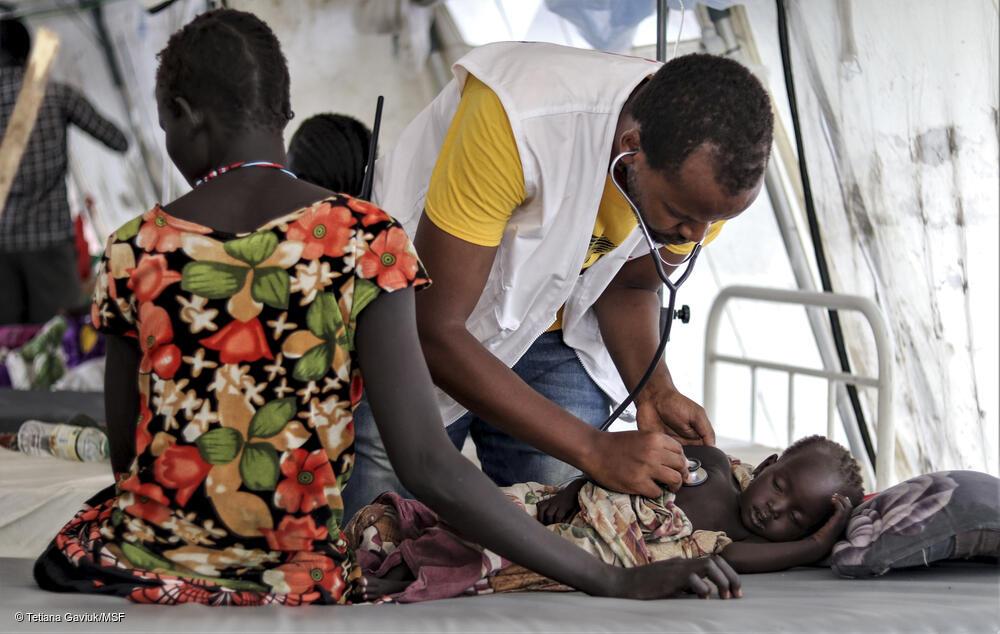After 15 years providing medical care to the people of the Greater Pibor Administrative Area, in eastern South Sudan, Médecins Sans Frontières/Doctors Without Borders (MSF) is closing its project in Pibor town, in order to reorganise its medical activities in a new way that is more efficient and responsive to the health needs of this community.
“MSF is essentially an emergency organisation,” says Azaad Alocco, MSF country director. “It is never our intention to replace local capacity, but to provide the type of healthcare that others are not able to. Currently, there are other organisations that are able to provide basic medical care in the Pibor region and institutional donors should support their efforts. MSF will remain in the Greater Pibor Administrative Area for emergencies.”
MSF opened three healthcare facilities in the region in 2005 and 2006, covering Pibor, Lekuangole and Gumuruk towns. Since then, MSF has treated hundreds of thousands of patients. Thousands of children have been born at MSF facilities and hundreds more transferred by MSF to other health facilities for lifesaving surgery.
In 2020, MSF treated over 32,500 people in Pibor town, mainly for malaria, malnutrition, diarrhoea, measles, respiratory and urinary tract infections, and skin diseases. The organisation also provided care for pregnant and lactating women.
However, the project has faced many challenges. Over the years, outbreaks of violence and severe flooding have forced MSF to regularly suspend its medical activities and necessitated regular reinvestment in basic infrastructure to rebuild damaged facilities. The isolated geography made delivering quality medical services to the nomadic communities that much harder.
”Rebuilding our hospital each year required a great deal of time and budget,” says Azaad. “We will now increase our mobility and get closer to patients who cannot reach Pibor town. All Greater Pibor Administrative Area sadly suffers from chronic emergencies, many with serious health consequences, and MSF reorientation will be well placed to timely respond to the medical emergency needs.”
On 24 December, MSF will discharge its last patients in Pibor, where currently it is still running a small clinic providing care mainly for patients with malaria and malnutrition.
